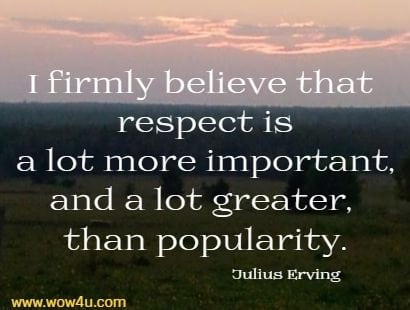
I type faster when I am passionate about a subject. I need to get it down quick and get it out to “you” whoever “you” are. The person to whom I am speaking. I need you to know what I think about who you are and what you do that I don’t. Yes, I do know that what I think about you makes not a jot of difference in who you are. And in the group of people I hang out with, what you think about me is none of my business.
A Twitter friend came up with the question “what are you passionate about.” It took 1 day and a conversation with another friend for me to zero in on something I am passionate about, other than writing about my father, Eddie Green, born 1891, filmmaker, songwriter, radio icon, dancer, stage and screen actor. I am passionate about disrespect and using it to laugh at whomever we choose. There are comedic programs today that choose to mock people, which, in my opinion, is a form of disrespect in the guise of comedy. I know at least one person who thinks certain comedy programs are being politically selective in who they mock. My question is why is it ok to mock any political person? Why would it be ok to pick out their mistakes, and missteps to use to make audiences roar with laughter? Why do we choose to humiliate those in office at all? They are people, just like us, trying to do the job that we voted them into. Why are we willing to be entertained through their gaffs?

Of course, there are people who can make disrespect funny. Rodney Dangerfield, for instance. But he laughs at himself.
A long time ago The New Yorker magazine printed a cartoon. Two men were walking down the street in opposite directions. One of the men tripped and fell and all of his papers in his briefcase flew out all over the street. The other man stopped and helped the man pick up his papers and straighten himself. This other man patted the guy on his shoulder and saw him off down the street to go on with his day. After watching the man who had fallen down walk on a few feet, the good samaritan busted out laughing!! One assumed he was laughing because the man fell down. So, I suppose it is just a human thing to do. But at least the cartoonist let the man hold his amusement in ’till the guy was a distance away.

We put our amusement on TV! We stream it! We draw caricatures. Immediately! Ahaha! Did you see what he just did, Ahaha!!! Did you hear what she just said!! Was that stupid, or what! Ahaha!! Of course, in America, we can laugh at or talk about any or everything. And, yes some things are just hilarious! Even if they do make the person we are laughing at look foolish.
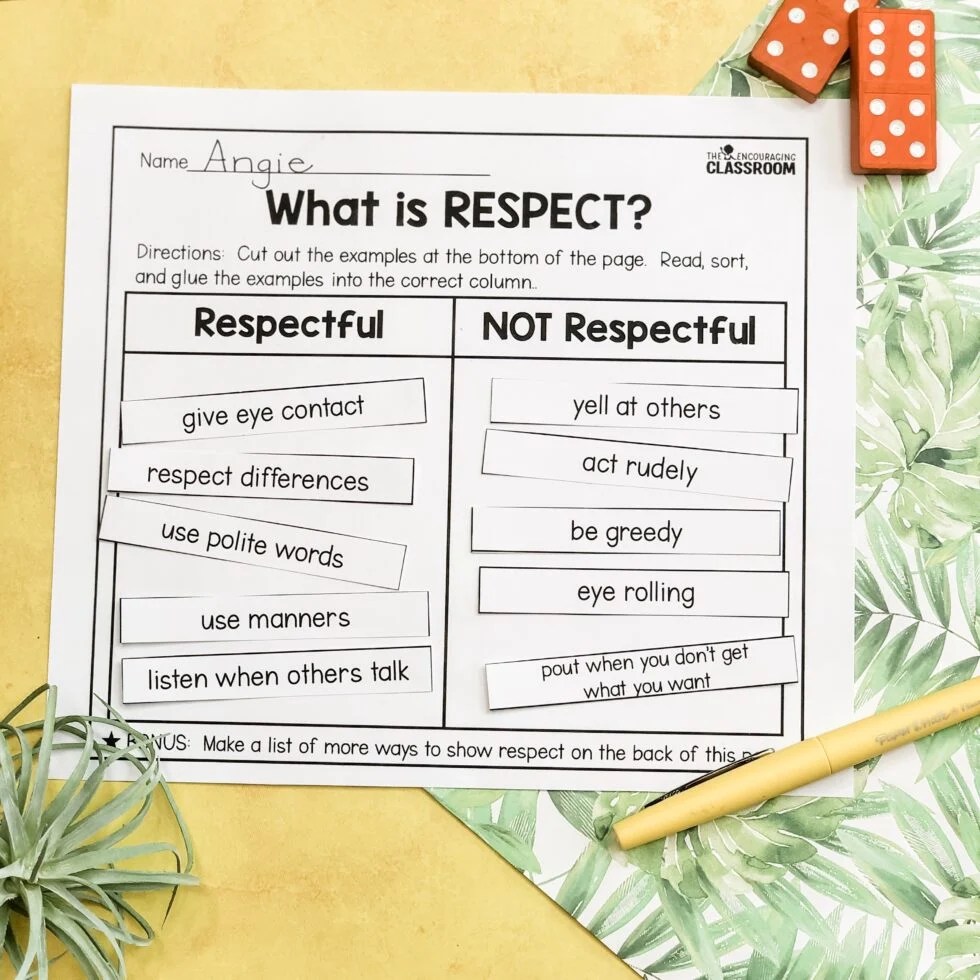

Or we roll our eyes, and according to Angie eye-rolling is disrespectful.
I’m not specifically talking about the political arena here, though. Just including it into what strikes me as disrespect. Disrespect (a lack of regard for people’s feelings.) Unfortunately, I have personal experience. My early good life morphed into family dysfunction. (Imagine you are eight years old and you are asleep in your bed and someone comes in and RIPS the covers off of you in the middle of the night and makes you get up and wash those dishes again because you didn’t do it right the first time.) There is more, So yes, I am sensitive. And I know there are many others out there who experience disrespect of all kinds and who may be craving just to be appreciated, to be heard. Or, maybe not.
I guess my point here is that if you want me to get my soapbox out, just bring up a subject that I think is disrespctful and be prepared for me to go on and on and on. Probably causing at least one of you to roll your eyes.
Hey, thanks for reading and thank you so much for stopping by.
Don’t forget my books make great Christmas presents:

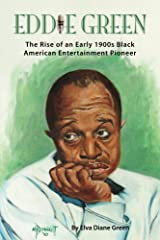

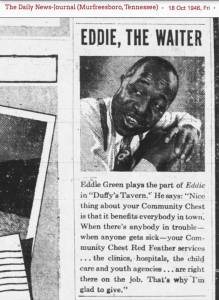

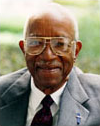 H
H
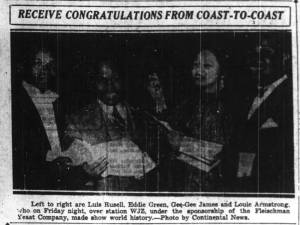 Never having experienced this I tend to forget that Black entertainers of the early 1900s faced blatant racism constantly. Maybe even daily. It had to have been a constant stressor. Yet, actors like Gee Gee and my father, Eddie Green, lit up a room when they walked in. They were gracious off stage and dedicated to their craft on stage. These trailblazers have, because of their fortitude, become my heroes. I chose to write about Gee Gee James today because she and my father were once comedic partners. But like Eddie before I wrote my book, Gee Gee has pretty much been forgotten or over-looked. In this extremely bad copy you can see her from 1937: “Luis Russell, Eddie Green, Gee Gee James and Louie Armstrong, who on Friday night, over station WJZ, under the sponsorship of the Fleischman Yeast Company, made show world history.”—Photo by Continental News 1937
Never having experienced this I tend to forget that Black entertainers of the early 1900s faced blatant racism constantly. Maybe even daily. It had to have been a constant stressor. Yet, actors like Gee Gee and my father, Eddie Green, lit up a room when they walked in. They were gracious off stage and dedicated to their craft on stage. These trailblazers have, because of their fortitude, become my heroes. I chose to write about Gee Gee James today because she and my father were once comedic partners. But like Eddie before I wrote my book, Gee Gee has pretty much been forgotten or over-looked. In this extremely bad copy you can see her from 1937: “Luis Russell, Eddie Green, Gee Gee James and Louie Armstrong, who on Friday night, over station WJZ, under the sponsorship of the Fleischman Yeast Company, made show world history.”—Photo by Continental News 1937